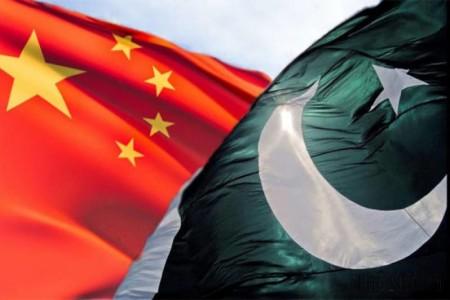YANTAI, Jun.2 – “Relying on its complete industrial chain and strong logistics system, China’s cross-border e-commerce is at the forefront of the global cross-border e-commerce industry. We hope to learn from China’s cross-border e-commerce experience to strengthen our own cross-border e-commerce capabilities in Pakistan and enhance Pak-China economic and trade collaboration,” emphasized Muhammad Anis, Secretary General of the Daroghawala Industry Owners Association.
During the recent 2023 China (Shandong) Cross-border E-commerce Trade Fair held in Yantai, Shandong province, Muhammad Anis expressed his association’s interest in establishing a cross-border e-commerce site among its members to explore new trade opportunities.
Anis pointed out that this exhibition effectively integrates the resources of the cross-border e-commerce industry, with the participation of relevant cross-border e-commerce departments, platforms, service providers, import and export enterprises, and more. Through business matching and other activities, he discovered potential cooperation opportunities in China-Pakistan cross-border e-commerce, including establishing overseas warehouses and providing training for electronic customer service.
Cross-border e-commerce has become increasingly popular among global consumers who prefer the convenience of online shopping. It is a rapidly developing sector worldwide. According to a report by WTO, global B2C cross-border e-commerce is projected to maintain a growth rate of 27 percent until 2026.
Exports play a vital role in Pakistan’s economy. However, Pakistan’s high-quality exports have traditionally relied on conventional trade methods. Compared to traditional trade, cross-border e-commerce offers faster, more convenient, and more timely transactions. Pak-China cross-border e-commerce cooperation provides various platforms and opportunities to promote Pakistani products. Developing cross-border e-commerce infrastructure and training cross-border e-commerce professionals in Pakistan are crucial for the country’s economic growth.
Major categories traded between Pakistan and China through cross-border e-commerce include electronics, hardware materials, stationery, nuts, rice, gems, handicrafts, and football. Anis noted that the Daroghawala Industry Owners Association, representing over 1,500 enterprises engaged in agriculture, steel, and auto parts, aims to expand bilateral cooperation through cross-border e-commerce channels.
“We welcome Chinese e-commerce companies to establish branches in Pakistan to share website design and development expertise, warehousing and logistics technology, and leverage the Pakistani platform to source high-quality raw materials, create products along the entire industrial chain, and establish a comprehensive service system. This will provide comprehensive impetus for Pakistan’s economic development,” concluded Anis.
















